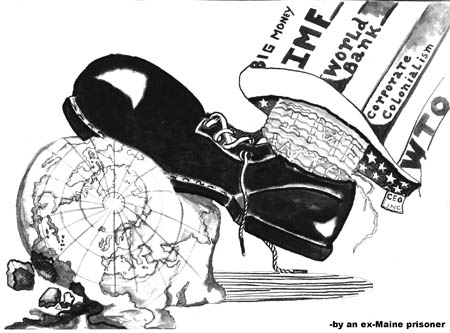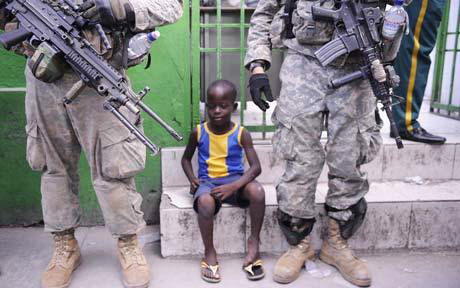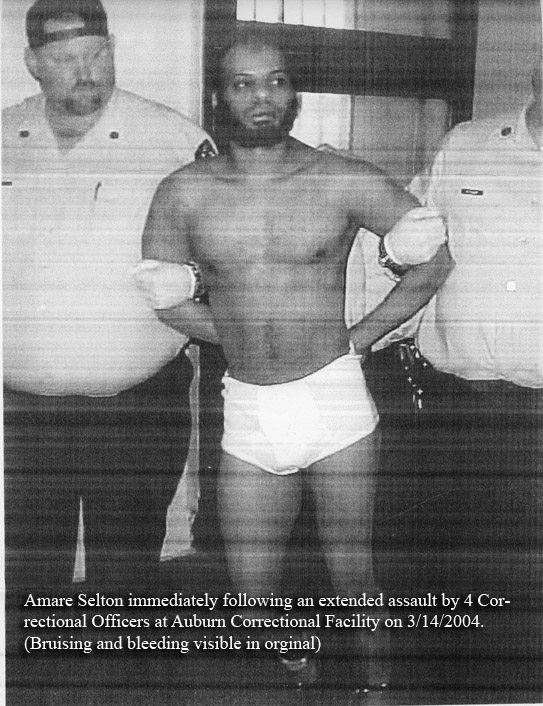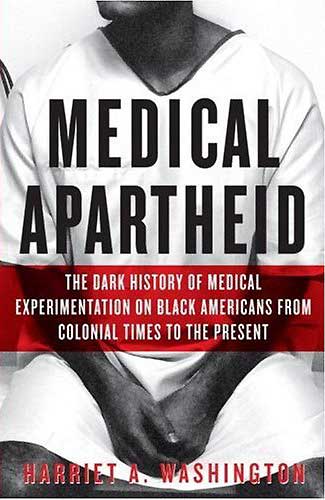
From December 7 through 18, 2009, the UN-sponsored 15th Conference of
Parties (COP15) was held in Copenhagen, Denmark. COP15 was a gathering
where world powers came together to discuss the impending doom of
climate change and what they will, or won’t, do about it. This series of
semi-annual COP talks began officially in November 1994, and in 1997 the
group adopted a document called the Kyoto Protocol, which is a
supposedly legally binding agreement that targets an average reduction
of 5.2% from 1990 levels of greenhouse gas emissions (GGEs) by the year
2012. In 2009, the u.$. offered to lower GGEs by 4% of 1990 levels,
while the UN Intergovernmental Panel on Climate Change wants developed
countries to curb emissions by 25-40% of 1990 levels.(1) The u.$. is the
only imperialist country in the world that hasn’t signed the Kyoto
Protocol, while other imperialist countries have officially agreed to
the document, but have not obeyed it, such as klanada who raised their
GGEs by 26%(2).
According to the Kyoto Protocol, the primary way the polluters of the
world are supposed to reduce their GGEs is through emissions trading,
what is also called “cap and trade.” Based on their current pollution
levels, governments grant a certain amount of permission to companies to
pollute, the “cap,” in the form of emission reduction credits. Companies
that want to pollute more than the amount of credits they have can buy
them from companies who don’t max out their own. Hypothetically,
companies who pollute more are paying the price, and companies who
pollute less are benefiting. In reality, there are so many loopholes in
the “cap and trade” that a 15% reduction of GGEs on paper can actually
equate to a 10% increase.(3) Before the Kyoto Protocol, global GGEs went
up 1.5% per year. After the Kyoto Protocol, they went up 3% per year.(4)
The only reason this backwards strategy is even on the table is because
of attempts to submit to those who worship the capitalist market as a
god that can solve all problems.
The system of carbon emissions trading is also limited by focusing on
one form of pollution only. There is an incorrect assumption here that
everyone has equal access to polluting and suffer from pollution
equally. As many parties at COP15 pointed out, whole nations face
extinction due to climate change they didn’t contribute to creating.
Twenty percent of the world population have emitted more than 2/3 of
emissions, and caused more than 90% of the increase in temperatures.(5)
Plus, pollution from factories doesn’t just contaminate the air with
greenhouse gases, it contaminates drinking water and soil and has more
local affects on the atmosphere as well, as evidenced by increased
occurrences of asthma. So companies who are higher-polluting and are on
the buying end of the emission reduction credits scheme create “hot
spots” with lots of pollution of all kinds. These “hot spots” have been
largely exported to the Third World where production for the exploiter
nations is now centered. Even in the united $tates it is
disproportionately ghettos and reservations that are ravaged by
environmental pollution.
In 2009 a new document came out of the COP talks, called the Copenhagen
Accord. It was crafted by the u.$. in negotiation with other imperialist
consumer nations and some major neo-colonial producer nations.(6) The
Copenhagen Accord is pathetic in that it’s not legally binding and is
basically an outline of some generic judgments on climate change
(essentially, “it’s bad”), and a simple form where countries write in
their emission goals for each other to examine. The u.$. is trying to
legitimize the existence of the Accord by obtaining as many signatures
on it as possible. Hillary Clinton’s tactic to accomplish this goal is
to withhold aid from countries who do not sign. Yet, the aid proposed,
not even guaranteed, is just $100 billion from all developed countries
combined. To compare, President Evo Morales of Bolivia released a
document requesting developed countries pay a minimum of 1% of their
annual GDP into a UN fund for underdeveloped countries.(5) For the u.$.
alone, this would be a $144 billion annual contribution according to its
2008 GDP.(7)
Another solution being pushed at COP15, presented by the climate
negotiator Miguel Lovera of Paraguay, is for more countries to give
money to REDD (Reducing Emissions from Deforestation and Degradation).
REDD is an international fund to pay poor nations for saving or
replanting forests instead of cutting them down for timber or cash
crops. Obama called REDD “cost effective” because instead of reducing
u.$. emissions, they can buy their way out of public pressure by giving
money to REDD. Yet, REDD is just a formula to give money to people who
already have money, who can afford to clear cut a forest in the first
place. In the words of Camila Moreno of Friends of the Earth in Brazil,
REDD is a mechanism designed to avoid deforestation but we know, and
they say, indigenous people do not deforest because their life depends
on the forest and they live with the forest. So the whole point is that
REDD is designed [for] the guy that has the chainsaw, or the money to
buy the chainsaw, or the big bulldozers and can say “Okay, I’m going to
do this. How much you pay for me not doing?” (8)
The Copenhagen Accord and REDD are the two major deals that were
discussed in the mainstream “left” press regarding COP15. Both serve the
economic interests of the oppressor nations, and neither will
significantly affect climate change.
Many speakers correctly recognized capitalism as the main cause of
climate change, and Venezuelan President Hugo Chavez accurately noted
that to have true environmental protection, we need to go from a
capitalist economy to a socialist economy. In oppressed nations where
pollution is dumped and forests are destroyed, if the polluters are
pushed out by national liberation struggles, eventually they will run
out of places to pollute. Therefore environmentalists must build and
support national liberation struggles in an internationalist effort to
reduce greenhouse gases and defend natural resources of the oppressed.
Environmentalism as Mysticism
Many of the speakers and representatives at COP15 were referring to an
inherent responsibility of humyns to protect “Mother Earth.” As
materialists, we know that all ideas and moralities are created by
humyns, and MIM(Prisons) does not believe in or support mysticism. On
the other hand, we are communists, and believe in ending power of people
over people. So then, what is revolutionary environmentalism? To further
explain, we will quote from page 32 of MIM Theory 12: Environment
Society Revolution:
It is no more wrong for a human to dig up something useful from the
earth than it is for a meteorite to strike a planet somewhere in space.
The moral question is the question of human relations first. The idea
that it is wrong to exploit, oppress and kill a human being is a human
idea, and like all human ideas it occurs only on the basis of class and
gender relations. From the oppression and exploitation of some humans by
other humans, the oppressed and exploited have developed a morality that
condemns this, and we develop a practice to end it… [W]e do not at
present believe there is a basis for calling the “destruction” of the
Earth as a planet itself immoral, apart from its relation to humanity
and, possibly, other life.
Tuvalu is a small island nation in the Pacific ocean about halfway
between Hawaii and Australia. Along with most other islands and many
coastal areas, it will be submerged under water by the end of the
century if the global temperature exceeds a 1.5 degrees Celcius, or 2.7
degrees Fahrenheit, rise above pre-industrial temperatures. “Genocide”
is defined by the United Nations as “the acts that lead to the
disappearance of a people” and the u.$. plays a direct and leading role
in this oppression. It is not so much the island of Tuvalu itself, as
the Tuvaluan people whom we need to advocate for on this issue.
Reparations & Refugees
Although the official deal that came out of COP15 is a commitment to
more of the same from the imperialist countries, the event was unique in
that it was the first time that much of the Third World united demanding
reparations, and the imperialists had to directly say “no” to these
demands. The G77 is a group of over 130 underdeveloped countries, and
was the largest united front to enter the talks. Although the G77 didn’t
ask for direct payment from imperialist nations, they called for a 60%
reduction of current GGEs of the imperialist countries by 2020.(8) With
a limit on global carbon emissions, such a reduction grants more
“atmospheric space” for exploited countries to utilize to meet their own
people’s needs.
On the topic of direct transfer of wealth as reparations, the UN
estimates that it will take at least $500 or $600 billion per year for
underdeveloped countries to sustain their people without the development
of outdated and heavy polluting industries. This number is backed by
another study that came out of London. Even surpassing Evo Morales’ call
for 1%, Martin Khor, executive director of South Centre think tank,
estimates that it will require at least 2% of the GNP from rich
countries, which totals about $800 billion per year.(5) Stemming from
our understanding of exploitation and the transfer of wealth from the
Third World to the First World, we support the demand for reparations in
all forms.
However, the united $tates has explicitly stated that they will not pay
their dues. As u.$. climate negotiator Todd Stearn clumsily explained,
We fully recognize that our historic role in putting emissions up in the
atmosphere and we also fully recognize our responsibility to be part of
an overall global effort to help poorer countries, both with the regard
to the need to adapt to the impacts of climate change and the need to
help them develop on a sustainable path, which at this point in our
collective history means low-carbon path. Reparations to me conveys of
culpability, guilt, that kind of thing. And I don’t think that’s a
legitimate way to look at it. (9)
Aside from the problem we have with Stearn’s attempt to lump the rest of
the world into amerikkka’s “collective history” of exploitation and
genocide, we ask, what the hell is “responsiblity” and “recognition of a
historic role” if it isn’t also an admission of guilt? We know we will
never get a logical answer to this question, so instead we ask the Third
World and revolutionaries everywhere, how will the u.$. pay for its past
and continued contribution to climate genocide?
To show exactly how the imperialist settler nations see the rights of
First Nations peoples to land and liberty, and by extension of all
oppressed nations to the same, we will quote from part of a speech that
Naomi Klein gave at COP15. Naomi Klein is the author of No Logo
and The Shock Doctrine: The Rise of Disaster Capitalism. This
anecdote tells about when she accompanied First Nations representatives
to discuss klanada’s debt to them with a credit rating agency called
Moody’s:
I was with the very powerful First Nations spokesperson for the Haida,
named Gujao, and Arthur Manuel, who is a former chief for the
Nuu-chah-nulth First Nation in British Columbia. And Arthur had decided
that one way to get Canada to acknowledge the debts that it owed to
First Nations people was to meet with the credit agencies that give
Canada its triple-A credit rating, which is the highest possible credit
rating, and explain to Moody’s that actually Canada carries a huge
unpaid debt in the form of the lands that it stole, without treaties,
from First Nations peoples.
…[A]rthur and Gujao presented all the documents, the writs, the legal
rulings by the Supreme Court of Canada, that proved their case that this
land was stolen and that they were owed billions in unpaid debts. And
they said, “Canada is not a great place to do investment, because what
if we called in these debts?” And it was very interesting, because the
guy from Moody’s nodded, and he said, “You’re right. We’ve been
following these court rulings, but we have decided that you are not
going to collect on these debts. So it is not affecting our credit
rating.”
And that’s a very important thing for us to remember, because debt is
political. Right? You can make your argument. And when we make these
arguments, frankly, no one even bothers arguing with us, because it’s so
obvious. The science is there. The legal treaties are there. But really
what they’re saying is, “You and what army? How are you going to get
this money out of us? You are not powerful enough to get the money out
of us.” (2)
It is historically proven that any serious measures taken to acquire
adequate repayment for destruction caused by imperialism, or even
efforts to protect what few forests we have left, will be met with
guns.(10) They are even willing to kill their own: in 2005 an
amerikan-born nun was murdered by land grabbers who were connected with
endangered hardwood trade with the u.$, Europe, and Asia.(11) Some
groups have already recognized the need for armed resistance to protect
their livelihoods, such as indigenous peoples in the Amazon who protect
their forests with spears, and those in Kenya who use guns.(12, 13) The
Communist Party of China proved through their liberation struggle the
tactics necessary to win warfare against an enemy who has more numerous
and powerful weapons. To catalyze the process, we encourage them to
study the CPC’s military guerilla theories and practices.
In addition to demanding reparations, some speakers are calling for an
opening of borders, and permission for people who are refugees due to
climate change to be allowed to relocate to territories that are less
affected. It is yet to be seen if the imperialist countries will fulfill
this request, but considering the fat wall that’s being built through
Aztlán, and how the wars in Darfur are portrayed as religious wars in
the u.$. media, when in fact they are due to fighting over water
shortages because of climate change, we doubt they will take a
progressive stance on the issue.
Amerikan Consumerism
While a majority of amerikans accept that global climate change is
something that is occurring due to humyn activity, and most think the
government should do something, with recession looming the majority said
economic growth should be given priority over the environment. The
Gallup Poll from March 2009 was the first time that amerikans favored
economic growth over the environment in 15 surveys asking this question
dating back to 1984. The trend showed a general decline in environmental
popularity leading up to the final victory of economics this year.(14)
It is a simple fact that justice and amerikan consumption levels are
mutually exclusive. To have justice everyone would have access to such
consumption, which would require 6 Earths worth of resources. A decrease
in consumption is a major fear of the capitalists right now as they
struggle to keep financial markets from crashing, so TV personas have
begun crying about the Third World trying to destroy the amerikan
standard of living. While the desirability of amerikan lifestyles is a
question of subjectivity, the need for its elimination is objective
based on the question of climate change alone. For decades, imperialist
overproduction has been backed by such overconsumption. In contrast, a
socialist economy does not require overconsumption and does not face
periodic crisis leading to humyn suffering.
As one example of this overconsumption, The New York Times
reports that on average, amerikans consume eight ounces of meat per day,
which is twice the global average.(15) At least eighteen percent of GGEs
are associated with the livestock cycle, and at COP15 Rajendra Pachauri,
chair of the UN’s Intergovernmental Panel on Climate Change, advocated
that if we stop eating meat once per week, it will reduce GGEs by 3, 4,
or even 5%.(8) This is just one example of how amerikan lifestyles will
necessarily change under the Socialist Dictatorship of the Proletariat.
Meat will be rationed, and cars will (largely, if not completely) be
replaced by public transportation and bicycles. While this may not sound
like the ideal lifestyle for some, it is even more true that amerikans
stand to lose life, not just luxury, by postponing the replacing of
their culture with an ecologically sustainable one. On an individual
level, MIM(Prisons) is opposed to lifestyle politics as a replacement
for revolutionary work. Not only are the consumer nations unwilling to
follow suit on a large scale, but the system of capitalism depends on
ever-increasing production that must also be profitable. Organizing
large scale
changes in culture and consumption patterns will require
a system that puts humyn survival over profits and such changes will not
be accepted voluntarily by the First World before it’s too late.
notes:
(1) Democracy Now! 8 December 2009
http://democracynow.org
(2)
DN! 11 December 2009
(3) “How to Cure the Copenhagen Hangover” by
Links
http://links.org.au/node/1426
(4)
DN! 22 December 2009
(5) DN! 9 December 2009
(6) “5 common
mistakes in the coverage of the Copenhagen Accord”
http://www.grist.org/article/2009-12-22-5-fallacies-in-the-coverage-of-the-copenhagen-accord/
(7)
Wikipedia page for “United States”
http://en.wikipedia.org/wiki/United_States
(8)
DN! 18 December 2009
(9) DN! 16 December 2009
(10) “Peruvian
police fire on unarmed indigenous tribes’ oil and gas protest”
http://www.guardian.co.uk/world/2009/jun/05/amazon-tribes-police-protest-deaths
(11)
“Farming the Amazon”
http://environment.nationalgeographic.com/environment/habitats/last-of-amazon.html
(12)
“The real Avatar story: indigenous people fight to save their forest
homes from corporate exploitation” Amazon Rainforest News
http://www.amazonrainforestnews.com/2009/12/real-avatar-story-indigenous-people.html
(13)
“Arm Sengwer Indigenous Peoples with guns to guard their lives and
property”
https://www.fpcn-global.org/node/118
(14)
http://www.pollingreport.com/enviro.htm
(15)
http://www.nytimes.com/2008/01/27/weekinreview/27bittman.html







 Alabama
Alabama
 Alaska
Alaska
 Arizona
Arizona
 Arkansas
Arkansas
 Army Post
Army Post
 California
California
 Colorado
Colorado
 Connecticut
Connecticut
 Delaware
Delaware
 District of Columbia
District of Columbia
 Federal
Federal
 Florida
Florida
 Georgia
Georgia
 Guam
Guam
 Hawaii
Hawaii
 Idaho
Idaho
 Illinois
Illinois
 Indiana
Indiana
 Iowa
Iowa
 Kansas
Kansas
 Kentucky
Kentucky
 Louisiana
Louisiana
 Maine
Maine
 Maryland
Maryland
 Massachusetts
Massachusetts
 Michigan
Michigan
 Minnesota
Minnesota
 Mississippi
Mississippi
 Missouri
Missouri
 Montana
Montana
 Nebraska
Nebraska
 Nevada
Nevada
 New Hampshire
New Hampshire
 New Jersey
New Jersey
 New Mexico
New Mexico
 New York
New York
 North Carolina
North Carolina
 North Dakota
North Dakota
 Ohio
Ohio
 Oklahoma
Oklahoma
 Oregon
Oregon
 Pennsylvania
Pennsylvania
 Puerto Rico
Puerto Rico
 Rhode Island
Rhode Island
 South Carolina
South Carolina
 South Dakota
South Dakota
 Tennessee
Tennessee
 Texas
Texas
 Utah
Utah
 Vermont
Vermont
 Virginia
Virginia
 Washington
Washington
 West Virginia
West Virginia
 Wisconsin
Wisconsin
 Wyoming
Wyoming



